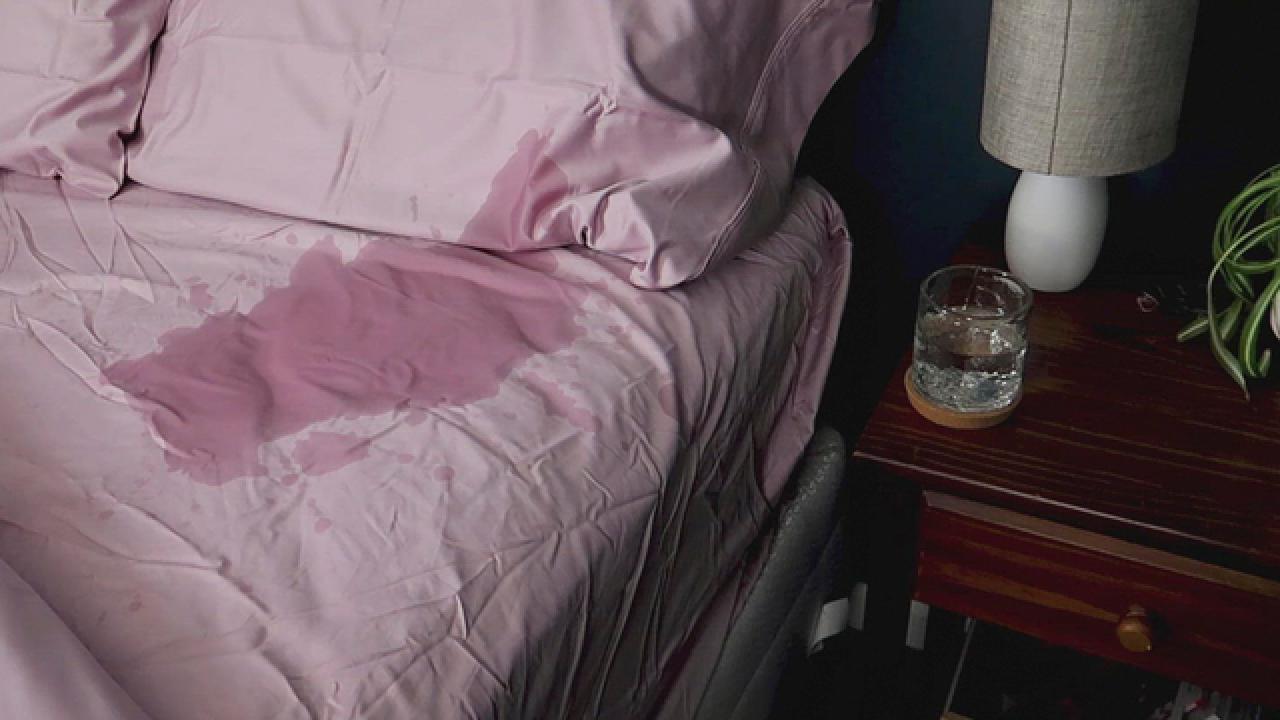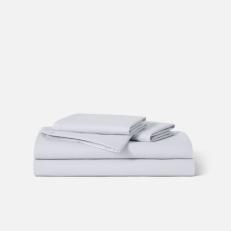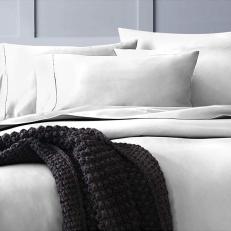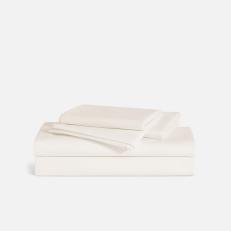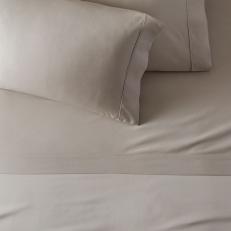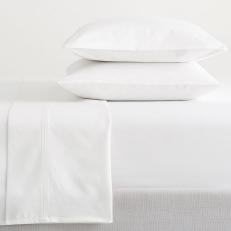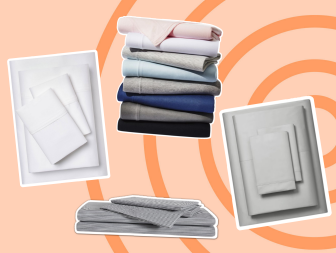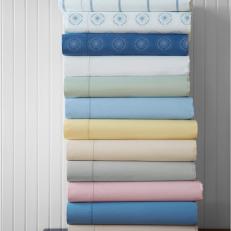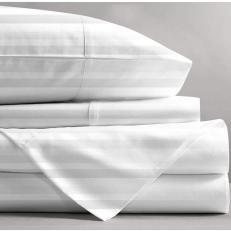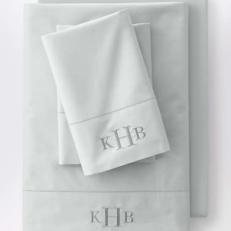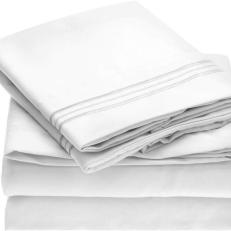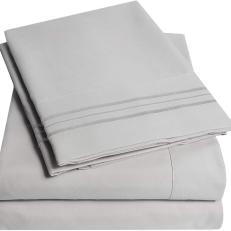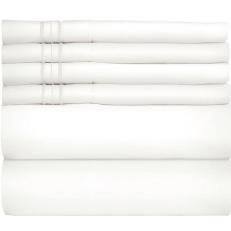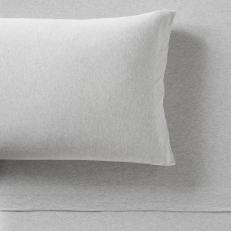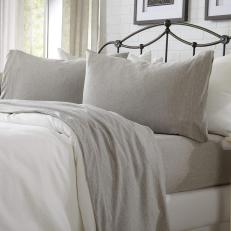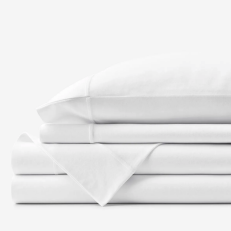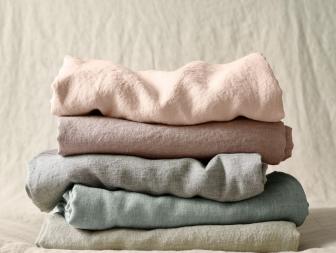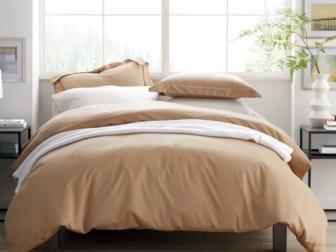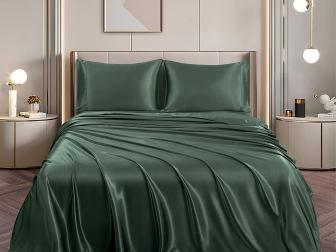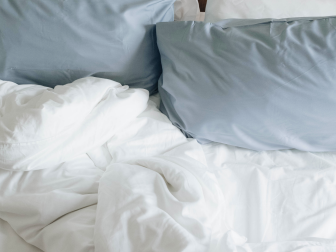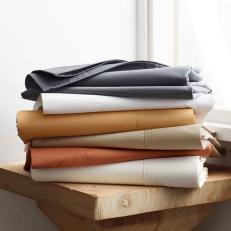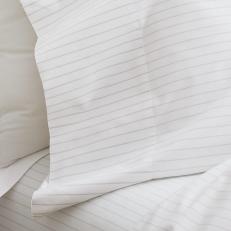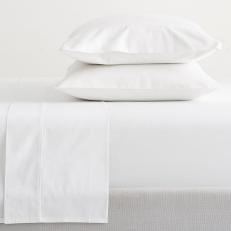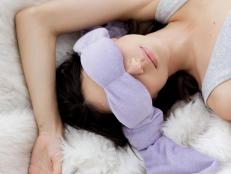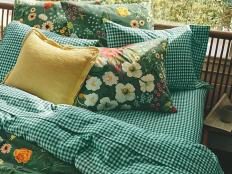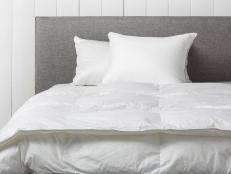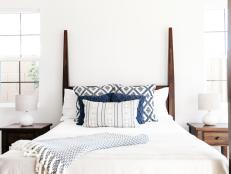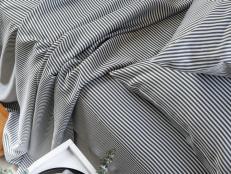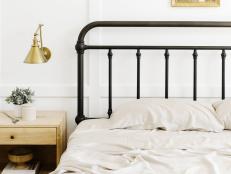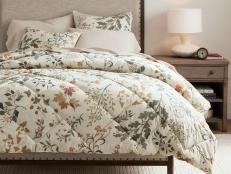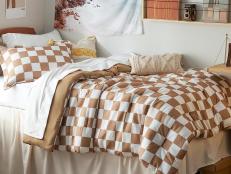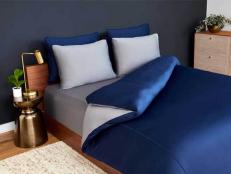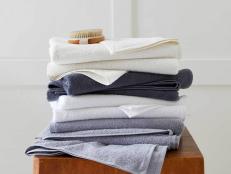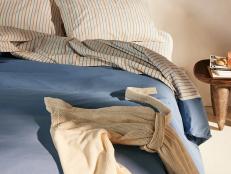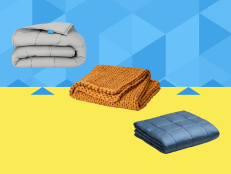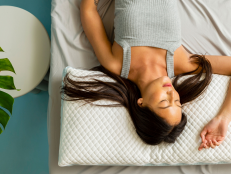Guide to Buying Sheets
Discover how to choose sheets that are soft, comfortable and long-lasting. Plus, learn the best thread count and the difference between weave types and materials.
Trying to settle on a set of sheets? Understanding some basics about the fabrics they're made of will help you compare labels wisely and make a smart choice.
"Cotton is by far the most-loved fabric for sheets," says Jim Symmes, vice president at Revman International, which manufactures sheets for prominent brands such as Tommy Bahama and Laura Ashley. "It's soft, durable and breathes well. But improvements in the manufacturing process and finishing techniques mean that other fabrics like polyester can be a viable alternative to cotton." What you're looking for is what the industry dubs a nice "hand" — soft and luxe to the touch.
Some fabrics may fit your needs better than others. Here's a guide to choosing the best sheet set that's right for you.
What Does Thread Count Mean? (Highest Isn't Always Best)
Thread count refers to the number of horizontal and vertical threads per square inch. Generally, the higher the thread count, the softer the sheet, and the more likely it will wear well — or even soften — over time. Good sheets range anywhere from 200 to 800, although you'll occasionally see numbers over 1,000. Astronomical thread counts don't necessarily mean the sheet is better — there are even tricks to inflating the thread count (such as using multiple yarns twisted together) that don't actually improve the hand of the fabric and may even detract from its quality.
Don't assume a low thread count means low-quality sheets. "There are 200-count cotton sheets out there that are finished very nicely and actually feel like they have a higher thread count," Symmes says. "Fewer chemicals and more mechanical finishings are used these days, giving a nice hand and performance." If you're watching pennies, try 200-count combed cotton sets from a well-known brand; name brands are likely to have high certification standards for their finishing processes.
Symmes says that his ideal sheet is a combed cotton sheet in the 300 to 400 thread count range.
Shop Top-Rated Sheets by Thread Count
The Best Sheets
Find the perfect sheets for your sleep style from our editor-approved selection of top-rated bedding.
What Are the Different Types of Cotton?
The highest-quality, softest sheets use cotton with extra-long fibers (called long-staple fibers) that can be spun into fine, strong yarns. Certified long-staple cotton includes Egyptian, Pima and Supima®. That doesn't mean that other types of cotton don't make nice sheets, Symmes says. A fabric that is finished nicely with a high thread count can be made of non-certified cotton and still be very comfortable.
Shop Top-Rated Cotton Sheets
Microfiber vs. Cotton Sheets
Sheets made of microfiber — fabric composed of extremely fine fibers of polyester — are affordable and soft, and they resist pilling more than traditional polyester fabric does. However, polyester is less breathable than cotton and is probably not the best choice for those with sensitive skin.
Cotton jersey sheets are also reasonably priced and very breathable because they're knit rather than woven. Jersey is basically t-shirt fabric, so jersey sheets may appeal to you if you like sleeping in a soft old shirt.
Microfiber and jersey don't have the cool crispness of woven cotton, so if you like to flip your pillows to the cool side all night long, you're better off looking at an inexpensive cotton percale instead.
Shop Top-Rated Microfiber + Jersey Sheets
What Is the Best Material for Sheets?
The best material for bed sheets depends on the sleeper. While the most popular fabric for sheets is cotton, you can find sheets in a variety of materials including cotton, flannel, silk, bamboo, linen and eucalyptus. Choosing the best sheets for your matress depends on what you need. Different fabrics have pros and cons.
- Cotton: Cotton is the most popular material for sheet sets. It's breathable and easy to wash making it a good option for warm sleepers. You'll find cotton sheet sets at a variety of price points, thread counts and in many different colors and patterns.
- Silk: For an ultra-luxe feel, you may want to spring for silk sheets. In testing, our editors found that some satin sheets were slippery, so you'll want to take that into consideration when choosing a set. Silk sheets are known for being anti-friction making them great for anyone who's worried about hair breakage, hypoallergenic and temperature-regulating.
- Flannel: Flannel sheets are ideal for those who run cold at night or who live in colder climates. Flannel is a material made either entirely or partially from cotton. It's known for its durability, so these sheet sets can last for years.
- Linen: Those looking for natural fabrics should consider linen sheet sets. Linen is made from fibers of the flax plant and is lightweight with a matte finish. It's known for being durable, antimicrobial and moisture-wicking. Linen sheets will get softer with time, so don't be surprised if they aren't the most comfortable the first sleep.
- Bamboo: Bamboo can be a sustainable material option and is a great cotton sheet alternative. Bamboo sheets are also more budget-friendly than cotton and are known for being pest-resistant, strong and versatile.
Top Sheet Sets, Tested by HGTV Editors
What About Weave Types?
Usually, the fabric weave and the manufacturing processes used won't be a big factor in your decision; often they don't even appear on the packaging. But there are a few terms you should know:
- Sateen is a cotton cloth made with a satin weave, a weave that produces a very soft, lustrous feel but can be somewhat less durable than a tighter weave.
- Percale is the crisp, durable plain weave fabric typically used for sheets; it has a thread count of at least 180.
- Combed cotton has been combed to remove the short fibers and leave the long ones, which makes for a strong, soft fabric.
Shop Top-Rated Sheets by Weave
